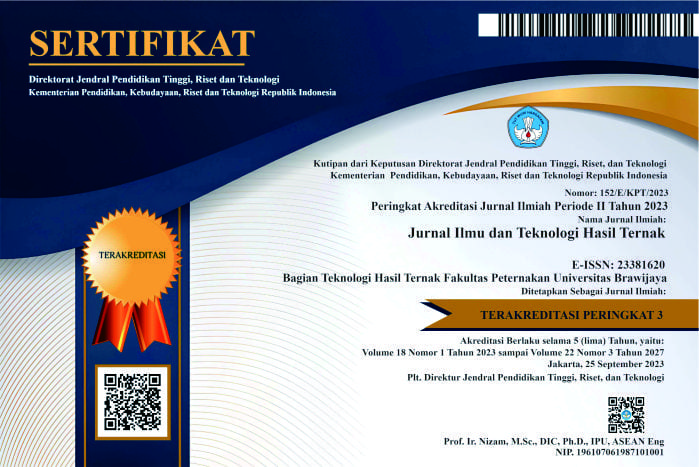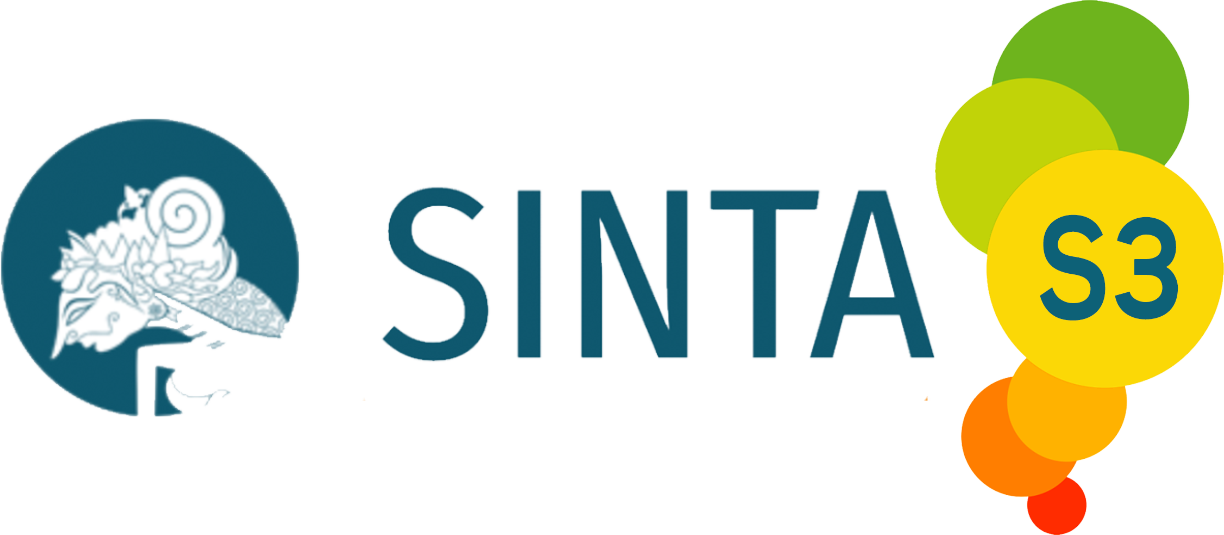The Potency of Bovine Bone Gelatin as Antihypertensive Agent: A Review
DOI:
https://doi.org/10.21776/ub.jitek.2021.016.03.2Keywords:
Antihypertensive activity, bioactive peptide, bovine bone gelatin, hypertensionAbstract
This review was purposed to understand the effectiveness of bovine bone gelatin as an antihypertensive agent. This review concerning the effectiveness of bovine bone gelatin as an antihypertensive agent. Hypertension, also called as a silent disease, has become the main cause of coronary heart disease and stroke that contributes to the malfunction of human organs. Changes of lifestyle alongside with science enhancement, provides new inventions regarding methods of hypertension therapy by minimizing the use of synthetic drugs. Collagen tissue of bovine bone gelatin is known to contain angiotensin converting enzyme (ACE) inhibitor, an active peptide that plays a role in lowering blood pressure supporting with the large amount of Gly (27%), Pro (17.6%), and Hyp (14.4%) and repeating pattern of Gly-X-Y. A study was carried out in vivo using injected spontaneously hypertensive rats (SHR) with 30 mg/kg and was able to reduce blood pressure by 15 mmHg. Antihypertensive test with SHR tail-cuff at 30 mg/kg bovine gelatin hydrolysate RGL-(Hyp)-GL and RGM-(Hyp)-GF were 31.3 mmHg and 38.6 mmHg respectively. A study conducted using bovine and porcine gelatin with 30–50 kDa (permeate P1) and 1–2 kDa (permeate P3) was able to reduce blood pressure by 22 mmHg and 21.33 mmHg. In addition, it is still possible conducting research to find out other peptides of bovine bone gelatin that can be used as a future alternative antihypertensive agent.Downloads
Published
2021-11-30
Issue
Section
Articles
License
Copyright (c) 2021 Irma Khikmawati, Savira Margi Rahayu, Annisa Nur Amieni, Muhammad Cahyadi

This work is licensed under a Creative Commons Attribution-NonCommercial 4.0 International License.
Authors who publish with this journal agree to the following terms:
- Authors retain copyright and grant the journal right of first publication with the work simultaneously licensed under a Creative Commons Attribution License that allows others to share the work with an acknowledgement of the work's authorship and initial publication in this journal.
- Authors are able to enter into separate, additional contractual arrangements for the non-exclusive distribution of the journal's published version of the work (e.g., post it to an institutional repository or publish it in a book), with an acknowledgement of its initial publication in this journal.
- Authors are permitted and encouraged to post their work online (e.g., in institutional repositories or on their website) prior to and during the submission process, as it can lead to productive exchanges, as well as earlier and greater citation of published work (See The Effect of Open Access).















